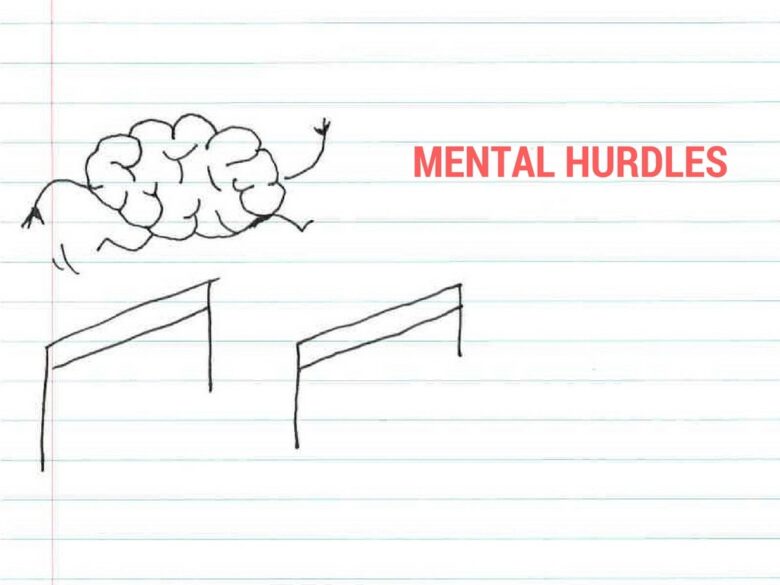You religiously follow a good diet, exercise daily, wear a mask during the pandemic, and even complete vaccine doses when necessary. We appreciate that effort. These things truly count! But what do you do to stay mentally fit?
Did that just sound weird? It might be because the concept of health in the general notion is often all about fighting germs and staying in good shape. In fact, this approach is not wrong, at least if not sufficient, to stay healthy. But, then, why mental health? Is it really necessary? Why bother?
Keep reading. You’ll get answers that we can assure you.
Contents
‘Mental Health’ – How does the Mind come under Health?

Source: betterhelp.com
The World Health Organisation (WHO) says in their famous definition that “health is a state of complete physical, mental and social well-being and not merely the absence of any disease or infirmity.” That says it all. In order to be considered ‘healthy,’ you should not only have a fit body, but you must also possess a sane and normally working mind.
How badly can Mental Health impact our well-being?
So you already know how vital it is to emphasize mental health and wellness as much as we do for conventional physical ailments. Unfortunately, we as a society have developed the bad habit of neglecting the former segment of well-being. A recent survey reports that globally, $9 trillion is spent each year on total health expenses, which is about 10.8% of global GDP. And guess what? Among these, mental health expenditure accounts for about 5% of the total global GDP. Now you are getting the picture clear, right? What’s even scarier? Another WHO report shows that the total global investment (both government health budget and private sector investment) to secure better mental health was only around 2% of the total GDP, which is still the same as the last few years!
Hurdles in the path of Mental Health

Source: medium.com
Here are some of the most common barriers you might face in this journey.
Finance
How much you may try to ignore money runs the world. Living in poverty or troubled socioeconomic and financial conditions make life difficult, especially since early childhood. It alters our expectations and point of view. Everyday insecurities regarding food, job, housing, and social status can grossly affect overall mental and physical health.
Relationship and family issues
It is the people around us who make the environment we live in. And in any trouble or stress, our first refugee is our family and loved ones. This is a very sensitive spot. Any adjustment issues or fights with our partners, loved ones and family members disturb mental peace significantly.
Loss of a loved one
On a similar note as the last point, grief is a vital factor behind a disturbed psyche. Death of a near and dear one falls hard on us; it changes the world around us and deteriorates mental well-being.
Self Esteem
Simply, Self-esteem is how a person feels about themself, and it has a lot to do with how a person feels mentally. Low self-esteem and confidence render a person unfit for social roles and public interaction. This might lead to depression, anxiety, etc.
Academics
Though not directly established as a causal factor, it has been noticed that poor academic performance greatly hampers mental well-being and might lead to depression, anxiety, substance use disorders, self-harm, etc.
Physical health
Physical health is another key factor for mental health. Chronic illnesses like cancer, neuropathy, arthritis, etc., and taboo infections like HIV, AIDS, Leprosy, etc., might lead to a huge financial load and disability paired with job loss and social stature. Overall it destroys one’s mental health.
Childhood trauma
Almost 30% of adults have a history of at least one childhood trauma in their lifetime. Furthermore, research shows people with early traumatic experiences are more likely to develop various psychiatric illnesses in later life. For example, a traumatic experience might be sexual abuse, accident, serious crime, violence, death of a particularly close person, etc.
Be mentally fit: break the barriers?

Source: goalcast.com
Being mentally fit mostly depends on personal choices. And believe me; it’s not that tough. However, if you wake up and choose to be happy today, only a handful of things can give you a hard time. So here are a few easy self-care tips to aid in this journey toward better mental health.
-
Talk to someone
Your mind absorbs a lot, but it can only endure so much. So when it feels too heavy, go, and confide in a trusted friend or partner. It’s not a weakness but rather a sign of your ability to know the limit. Sharing is caring, and sharing relieves the load. Talk. Open up. Cry. Being emotional is being human.
-
Drink water
Hydration is extremely important for your body and mind to work properly and in sync. Drinking 2-3 liters of water daily ensures that all your organ systems, including the brain and nerves, are in healthy shape. In addition, hydration helps to relax anxiety and provides better sleep as well.
-
Exercise
Exercise boosts adrenaline which helps us to make the right decisions in a crisis. Also, physical labor leads to the secretion of dopamine, the famous ‘feel good’ hormones. These uplift mood and boosts overall mental health.
-
Sleep well
An average adult needs 6-8 hours of sleep daily. Less sleep means a tired body and weary mind that can’t act or decide properly, leading to wrong choices and mental troubles later on. Oversleeping is bad for your health too. Maintain a fixed sleep schedule for optimum health.
-
Good food, good life
Food is energy. What you eat drives your body and mind, too, of course. Healthy, nutritious food ensures a fit body and a happy mind.
-
Professional help
When self-care isn’t enough, it’s always better to seek professional help from psychiatrists. You may visit https://onlinepsychologist.com.au/.
Stay safe. Stay happy. The world is a beautiful place, and you make it better. So never lose hope, even in dark times.
Always remember, ‘hope is a good thing, and no good thing ever dies. ‘
